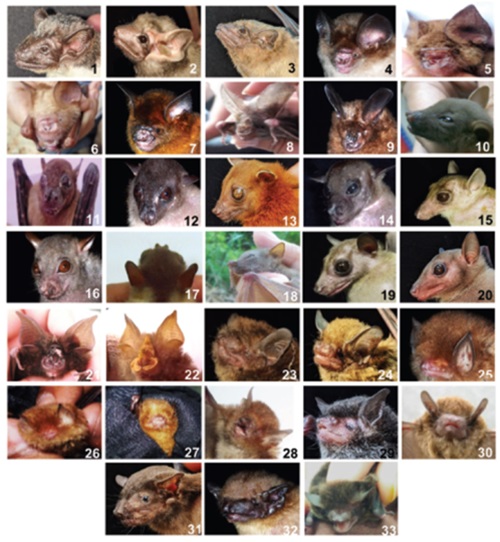English, as a global language, boasts a rich tapestry of diverse accents that reflect the cultural, regional, and historical variations across the English-speaking world. Embracing and understanding these different accents not only adds depth and nuance to our communication but also fosters inclusivity and appreciation for linguistic diversity. From the lilting melodies of Scottish Highlanders to the distinctive twang of a Texan drawl, each accent offers a unique flavour and charm. By exploring and adapting various English accents, individuals can enhance their language skills, develop cultural sensitivity, and forge deeper connections in an increasingly interconnected world.
If you wish to learn speaking with an accent like a champ, learning to pronounce letters correctly is the way to do it. This is because what you see while learning English doesn't always align with what you hear. Take the words "taught" (pronounced “thawt”) and "tough" (pronounced “tuhf”), for instance—they have only one-two letter difference, yet they sound entirely dissimilar. Despite its perplexity, mastering accurate English pronunciation is crucial to ensure effective communication with others. So, it is important to recognise that there are established sound systems that can guide us in pronouncing words accurately, irrespective of our individual accents. These sound systems, such as the International Phonetic Alphabet (IPA), provide a standardised representation of sounds found in various languages. These systems act as a bridge, enabling effective communication and mutual comprehension, while still allowing for the unique and beautiful variations in accents to thrive. By acknowledging the existence of these sound systems, we can appreciate the importance of clear pronunciation while celebrating the diverse ways in which English is spoken around the world.
If you're a non-native English speaker striving to enhance your language skills, this video is designed for you. A group of students from Kuliah 7 (BBI Group 24) have researched and selected words that often pose difficulties due to their unique phonetic structures. The students have not only researched the correct pronunciations but have also provided demonstrations, making it easy for you to follow along. We believe that accurate pronunciation leads to better understanding, stronger connections, and increased confidence in communication.
Here is the list of commonly mispronounced words included in the video below. Notice that some letters are silent when the word is pronounced.
- Cache /kæʃ/ - The letters ‘ch’ is pronounced just like when you are trying to ask people to be quiet, "shhh" and the letter ‘e’ is silenced. So, it sounds like 'cash'.
- Salmon /ˈsæm.É™n/ - The letter ‘l’ is silenced.
- Epitome /ɪˈpɪt.É™.mi/ - The letter ‘o’ does not sound like ‘o’ in the word ‘or’.
- Dessert /dɪˈzÉœËt/ - The first syllable is "dih" – the second syllable is "zurrt", sounds like the verb ‘hurt’. The second syllable makes a stronger sound than the first syllable.
- Doubts /daÊŠts/ - The letter ‘b’ is silenced.
- Frappé /ˈfræp.eɪ/ - The word came from the French, so it is pronounced as "fruh-pay".
- Archive /ˈɑË.kaɪv/ - The letters ‘ch’ is pronounced as the letter ‘k’ in the word ‘kereta’ of the Malay language.
- Mischievous /ˈmɪs.tʃɪ.vÉ™s/ - The letters ‘ch’ is pronounced just like when you say the word ‘cermin’ or ‘cemas’ in the Malay language.
- Women /ˈwɪm.ɪn/ - The letter ‘o’ is pronounced just like the vowel ‘e’ when you say the word ‘we’.
- Mature /məˈtʃʊər/ - The last syllable, ‘-ture', is pronounced just like when you say the second syllable in the word ‘dua’ (colloquial) of the Malay language.
- Yolk /jəʊk/ - The letter ‘l’ is silenced.
- Non- /ËŒnÉ’n/ - The words ‘non’ and ‘none’ are not the same, but they are always mistakenly pronounced the same way. For the word ‘non’, you should shape both of your upper and lower lips a little more roundly.
- Spread /spred/ - Begins with the ‘spr’ consonant cluster, and you go through all three of those sounds: ss, pp, rr. spr-, and opens into the ‘eh’ vowel as in the word ‘bed’.(Translation note. Kereta = car; cermin = glass; cemas=anxious; dua= two.)
With this video as your guide, you'll soon master the art of pronunciation, leaving mispronunciations behind and embracing the power of precise verbal expression. Repeat after them!
To get more pronunciations of many more words, it is recommended that you go to the Cambridge English Dictionary (Online) and listen to the audio of the words spoken by real people.
Author: Ms. Zur Hanis Hamim
Tarikh Input: 06/07/2023 | Kemaskini: 10/07/2023 | hasniah
PERKONGSIAN MEDIA


























